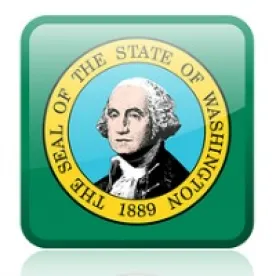With the groundbreaking enactment of a new law relating to certain transportation network companies, rideshare drivers in Washington State will soon enjoy various benefits typically associated with employee status while retaining the independence and flexibility of their independent contractor status.
On March 31, 2022, Governor Jay Inslee signed into law Engrossed Substitute House Bill (ESHB) 2076, which provides for minimum per-trip payments, paid sick leave, and workers’ compensation benefits for rideshare drivers. The law also effectively ensures that these workers will maintain their status as independent contractors and that transportation network companies will be free from the imposition of additional requirements on their businesses by local governments.
ESHB 2076 includes the following provisions:
| Minimum Trip Payments |
Beginning December 31, 2022, transportation network companies are required to ensure a driver’s total compensation is “not less than” $0.34 per passenger platform minute and $1.17 per passenger platform mile or $3.00 per dispatched trip, whichever is greater.
Drivers with rides in cities with populations of more than 600,000, such as Seattle, will earn at least $0.59 per passenger platform minute and $1.38 per passenger platform mile or $5.17 per trip, whichever is greater. |
| Workers’ Compensation Coverage | Beginning January 1, 2023, the Washington State Department of Labor and Industries will assess premiums for workers’ compensation coverage for rideshare drivers. |
| Paid Sick Leave | Beginning January 1, 2023, drivers will accrue one hour of paid sick leave for every forty hours worked, subject to the terms set forth in Washington’s paid sick leave law. This puts rideshare drivers on par with other Washington workers in terms of accruing paid sick leave. |
| Resource Center | The law creates a driver resource center to educate drivers regarding benefits available to them under the law and assist drivers who want to appeal account deactivations. Passenger fees collected by the companies will fund the resource center. |
The law also protects drivers from retaliation for exercising their rights under the law. The law does not appear to cover gig economy workers outside of the passenger platforms, such as those driving for grocery delivery companies, meal delivery, or other delivery service providers.
The statute provides an effective date of June 9, 2022, but as noted in the table above, several key provisions of the statute do not take effect until December 31, 2022, or January 1, 2023. Companies with rideshare drivers may want to be aware of these upcoming obligations and plan accordingly.





 />i
/>i

